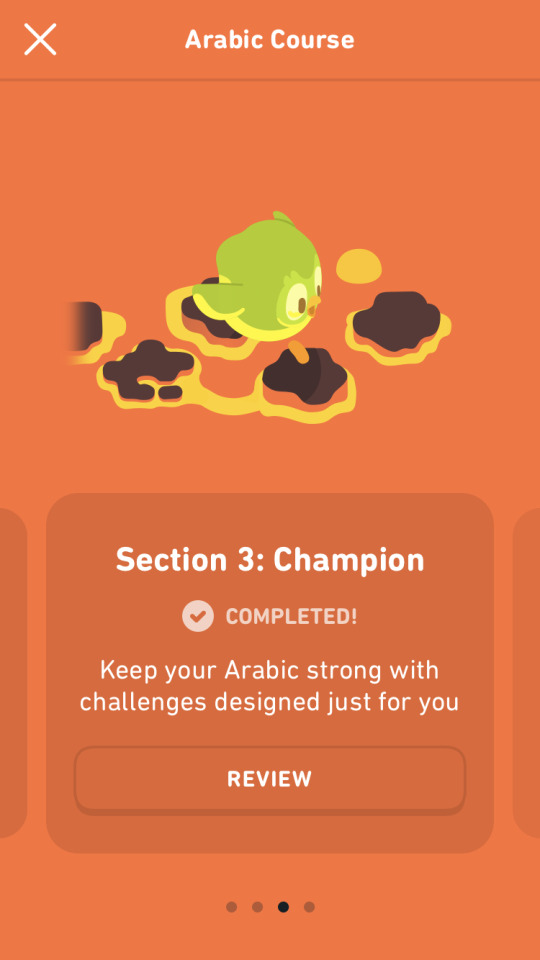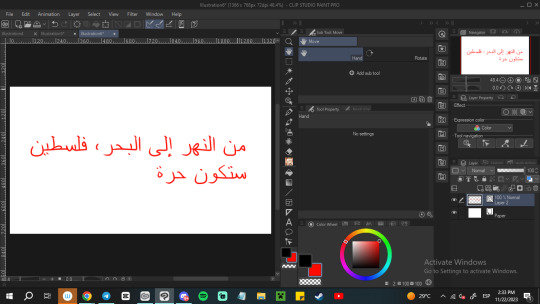#arabic grammar
Text
I noticed that most of my grammar lessons are beginniner/intermediate.
I'm thinking of preparing a small series of advanced Arabic grammar (on topics like the morphological scale, 'arūd (poetry), conjugation, etc).
9 notes
·
View notes
Text
Reading the Kane Chronicles as someone who actually speaks Arabic is both hilarious and annoying. The letters are disconnected. Either the spelling or sentence structure is backwards. And some of it is just plain wrong.
Al-Hamra Makan doesn’t mean “the place of red sands” it means “the red place”. And even in that it’s wrong because, in arabic, the noun comes become the adjective; meaning he basically wrote “place the red” wtf did rick use? google translate?
This isn’t a hate thing at all by the way, I adore his work, but of course getting a foreign language right in your book is kinda common sense.
#rr crit#rick riordan#the kane chronicles#rick riordan critical#riordanverse#arabic grammar#rick riordan crit#riordanverse crit#tkc
103 notes
·
View notes
Text
Arabic Essential Grammar #6 - The Dual
Hello hello, back again with something that really stumped me when I first started learning Arabic. The Dual!
In most languages, there is a singular form and a plural form, but in Arabic, they also have a Dual form! Used to refer to pairs of something or two people, it adds an ending to verbs/nouns which, you guessed it, then have their own conjugations!
It sounds really overwhelming, but in practice it isn't too difficult. In colloquial Arabic, the dual is really only used in regards to periods of time ( two hours ) or the parts of the body ( two eyes).
Endings
The nominative dual ending is: انِ
The accusative and genitive ending is: ...يْنِ
This is added to the singular of the word after removal of the case ending. For example:
From right to left: two books (nom.dual), book (nom)
كِتَابَانِ ------- كِتَابٌ
From right to left: two books (acc/gen.dual), book (acc)
كِتَابَيْنِ -------- كِتَابً
Special notes
If the noun ends in a taa marbuuta (), it becomes a regular ta () before the ending is added.
From right to left: Lady ( nominative), two ladies (nom.dual), two ladies (gen/acc.dual
سَيِّدَةٌ -------سَيِّدَتَانِ -------سَيِّدَتَيْنِ
If the noun ends in a hamza (), it changes into a waw () before the ending is added.
From right to left: desert ( nominative), two deserts (nom.dual), two deserts (gen/acc.dual)
صَحْرَاءٌ ------ صَحْرَاوَانِ ------- صَحْرَاوَيْنِ
Adjectives must agree with the nouns, and so they are also in dual.
عَندها عَيْنَانِ كَبِيْرَتَانِ
she had two large eyes.
If you're confused by what I mean by nominative, accusative and genitive, then please check out Arabic Essential Grammar #1!
Thanks for reading! Next week, I'm thinking of explaining either comparative/superlative or focusing on prepositions and their accompanying cases. Let me know what you want me to cover!
#Glumblr#arabic essential grammar#arabic grammar#arabic langauge#study arabic#grammar#arabic#arabic learning#arabic langblr#langblr#studyblr#tips
42 notes
·
View notes
Text
Present Tense المُضارِع
Watch me make a blog in January and then take until May to actually start posting.
I was actually thinking what I should be posting about and where I should start, but I decided that if somebody’s coming on tumblr to learn a language from a scratch, then they must be really naive, so I won’t attempt that. I suppose I’ll use the post format as a way to revise material as way as note new interesting info I might be learning. And we’ll see where it will bring me, I guess?
So let’s get started!
The first post will be about present tense because I probably need a good remainder of that.
Present tense is indicated by a prefix. The vowels in the present tense are not always obvious, so Arabic dictionaries (the ones that go alphabetically by roots) sometimes give the vowels of the present tense. I might actually make a post about Arabic dictionaries later, they're pretty neat.
Back to the المضارع!
Because I lowkey hate the فعل way of showing the patterns—because let's be real, the 3ayn in the middle is not making it any easier to hear whether it's فَعل or فَعِل or فِعَل etc.—I will use an easy verb as an example.
"To study"! It fits the purpose of the blog well, doesn't it?
I study ��� 'adrusu أَدْرُسُ
You (masc.) study – tadrusu تَدْرُسُ
You (fem.) study – tadrusiina تَدْرُسينَ
He studies – yadrusu يَدْرُسُ
She studies – tadrusu تَدْرُسُ
We study – nadrusu نَدْرُسُ
You (pl. masc.) study – tadrusuuna تَدْرُسونَ
You (pl. fem.) study – tadrusna تَدْرُسْنَ
They (masc.) study – yadrusuuna يَدْرُسونَ
They (fem.) study – yadrusna يَدْرُسْنَ
(side note: I think I will make a post about alphabet or more specifically the transcription I use because it might not be obvious to anyone)
So, that is a pretty typical stuff and everybody can read, but I want to draw your attention to a few things:
– the final short vowel is not said in spoken variety. i wrote it as a technicality but normally they're not said. saying all the final vowels (which in case of verbs tell us whether the verb is an indicative or a subjunctive; it's something I'll surely write about later) is ONLY done in FORMAL arabic. think Quran and such.
– notice that 2nd person sg masc is exactly the same as 3rd sg fem, which means you have to figure out from context which one it is
– notice that تَـ prefix usually indicates 2nd person (other than that 3rd sg fem) and then the suffix tells you more about the gender and number
– meanwhile prefix يَـ indicates 3rd person and then suffixes give you more information
– suffix for 2pl and 3pl masc. is the same and so is the suffix for 2pl and 3pl fem.
– mind that if the first vowel is different, then it will be different in conjugation, for example "I travel" would be "usaafiru – أُسافِرُ" with a damma, so a short "u"
That's just basic present tense conjugation, to get myself started on writing more stuff!
We'll see if I'll actually get around to write another post this month, shall we?
36 notes
·
View notes
Text
Unraveling the Similarities and Differences of Persian vs Arabic Languages
Persian vs Arabic: Unraveling the Intricacies of Two Distinct Languages
Persian and Arabic may share the same script, but they are vastly different languages with unique pronunciations, grammar, vocabulary and more. This article unravels the key similarities and differences to understand the nuances between these intricate languages.
As two of the most widely spoken languages in the Middle…

View On WordPress
#Arabic grammar#Arabic language#Arabic translation#Education Translation#Farsi#Farsi translation#language interpretation#Language Services#linguistics#Persian grammar#Persian language#Translation Services
0 notes
Text
Arabic language course | Learn Arabic Language | Arabic for Beginners | AnyArabic
Arabic language course, Learn Arabic language with AnyArabic courses, Arabic for beginners, learn Arabic language online with AnyArabic courses. 🔴 https://anyarabic.com ~~~~~~~~~~ 🟢 AnyArabic Platform 🟢 ⚡ AnyArabic is a platform that helps you to learn Arabic language online through huge collection of Arabic courses. AnyArabic provides 3 types of Arabic courses: ➜ Modern Standard Arabic courses ➜ Arabic Dialect courses ➜ Quranic Arabic courses Find more about our Arabic courses from the following link: 🔴 https://anyarabic.com/courses ~~~~~~~~~~~~~~~~~~~~~~~~~~~ ⚡ We publish daily video on YouTube about learning Arabic language. ~~~~~~~~~~~~~~~~~~~~~~~~~~~ #arabiclanguagecourse #arabiclanguage #learnarabiclanguage #learnarabic #arabicforbeginners #howtolearnarabic #arabic ~~~~~~~~~~~~~~~~~ #anyarabic #aralingo #learnanyarabic ~~~~~~~~~~~~~~~~~ Copyright information. * The music in this video are from the YouTube audio library and from video sites that provide free use of videos. * This video is copyright © Aralingo LLC. All rights reserved. ~~~~~~~~~~~~~~~~~~~~~~~~~~~ This video covers the following topics: arabic language course,learn arabic language,learn arabic,arabic for beginners,arabic,how to learn arabic,arabic language course,quranic arabic language course,arabic course,arabic grammar,arabic language learning,how to learn arabic language,arabic online,quranic language course,arabic phrases,course arabic language,arabic vocabulary,arabic language (interest),arabic language course online,arabic alphabet,learning arabic language in bangla,arabic lessons ~~~~~~~~~~~~~~~~~~~~
#arabiclanguagecourse#arabiclanguage#learnarabiclanguage#learnarabic#arabicforbeginners#howtolearnarabic#arabic ~~~~~~~~~~~~~~~~~#anyarabic#aralingo#learnanyarabic#arabic online#arabic grammar#learn arabic online#arabic course#arabic language#arabic courses
0 notes
Text
- VSO language
- No need for verb when mentioning what people do. "person+profession is enough"
- Same thing when equating a noun and an adjective: "person smart" is enough. No need for "is"
- No determinative
- Noun adj. ((wa) adj.)
- Person min (from) place
- /aaii/ is right before the person you're speaking with to show the message is for them.
1 note
·
View note
Text
i just heard a bad BAD take about abdul's name so giving my wisdom to the people as an egyptian muslim
DO NOT trust anyone who tells you that his name is blasphemy in any way IT'S NOT
let me start with the easy one. "avdol" isn't a real name, it doesn't exist. this is just a misspell/mistranslation but honestly i don't have anything against people who use it to refer to mohamed because misspells and mistranslations of names will always exist in every language, even in arabic there are misspells of english names and it's bad let me tell you
"abdul" is a shortened version of multiple names actually like "abdullah", "abdulhai", "abdalmonem" and "abdulfattah" but it also can be a name on its own. my uncle is literally named "abdul". it is a name you can not deny it, tho it's pronounced "abdo/عبدو" not "abdul/عبدل" but like.... misspells and mistranslations like i told you is language biggest enemy
(quick arabic lesson i guess but you can remove anything in the structure of sentences and words in arabic -but with rules ofc- in "abdullah" i simply removed god's name so the name rn just means slave "عبد" but i add the letter "و" to refer to god so now i have the name "abdo" that means the same thing as "abdullah" which is "servent of god")
anyways pronouncing or writing any arabic name wrong is NEVER a blasphemy who ever said it is was stretching very hard bro
but it doesn't matter how you choose to refer to him just enjoy the character you know, a name shouldn't be an obstacle
#arabic is a very complicated language just because of its grammar#i mean i do lose lots of grade points because of it cough ack#i hope this helped in any way#also i hope it was understandable god#jojo bizarre adventure#jjba#jjba sdc#jjba stardust crusaders#stardust crusaders#mohammed avdol#mohammed abdul#mohamed avdol#mohamed abdul#jjba part 3#mine
246 notes
·
View notes
Text
The issues & beauties of German music
(70s Kraut Rock )
Here, NOT ONE SINGLE SOUL talks about Krautrock 🌿 it seems like dead & forgotten (except CAN)
which is sad about this phenomenon :/ the only ones paying attention are prog magazines and music connoisseurs
Everyone talks about the Scorpions and Rammstein (in fact it's quality). Sometimes Boney M but... it's always the same: good music is too elite for the masses.
Even the band Eloy. Prog fans love them- the most listeners come from other places of the earth but not their origin country. Often a fault of the music industry, critics as well as the radio stations which really neglected these now in modern times.
//
The rhymes & language, pronunciation
Sure, worse languages exist. But to be honest, can you relax, with the German language? There's no flow at all, nothing like Italian or, you know, English. It's a popular opinion and what speaks against it?
Depends on the way someone sings and per region there is a difference but some harshness is always there.
//
Sung in English example: Eloy (again)
Some people are totally fine with the accent (their whole discography is in English sung by Frank Bornemann!!) others have problems getting into this band. Depends on the listener.
What often happened was that the groups had a British singer...
//

Old fashioned names
For example British rock: someone asks you, you say your idol is some random Jeff or Pete or whatever their names are. What about German musician's names? They're called Dieter or Jogi or Herbert or Udo
"Who's your favourite musician?" - Jürgen xy (sorry shouldn't sound mean)
People make jokes about old fashioned names, then why blaming yourself and getting sideeyed.
This is all a matter of coolness, let's move to the music...
//
A few information
Okay don't judge (seems extremely stereotype now) the people, musicians of the 60s and 70s were the first generation after WW2. You can imagine. The children of ex- patriots. They wanted to change something. BUT!! They were BOUND in the roots of their country.
There was a scene and later with many students and discotheques. There were artists from all over the world. The music is innovative and you can hear it even clearly. You can also hear their protest, spirit and the diversity of sounds.
There is nothing you can call THE Kraut. It's practically impossible to sum the sound up. Actually it's not a genre. That one word represents all the music made in Germany
//
An example.
You hear the instruments? The bass, drums, hard guitar, organs, saxophone EVERYTHING WORKS. SO FINE MUSIC.
Listen to it, create your own opinion.
Notes
1. So many songs by this one group called Lied des Teufels? Yeah. They're not known at all. That singer sounds like imitating Ian Gillan- Everyone can TRY to copy but they do it in their own style which is not copying, it's storytelling. (Kind of)
2. THE WHOLE THING SHOULD NOT MAKE ME SEEM PASSIONATE OR SOMETHING BECAUSE I DISCOVERED KRAUT LITERALLY YESTERDAY
3. Probably it's something that gets boring really fast
//
So...
Skillful musicians w/ ability to express themselves and the problems of their country. Wether the singing style is something for you or not- there are countless of other groups.
We HAVE TO speak about these forgotten acts again & give it a chance
#PLEASE CORRECT ME#PLEASE SAY WHEN THERE R SOME GRAMMAR MISTAKES#con:#So I bought a CD of classic kraut#SOME songs are horrible. Why? The rhymes suck. They suck what else to say they suck.#(You maybe think I'm mentally insane) It's true.#Spotify#Kraut Rock#why not making a post about Polish French Arabic whatever kinds of counties UGH WHY NOT EVERY ETHNIC IN MY GENES#my irony is miserable#ignore#random mind
36 notes
·
View notes
Text
9 notes
·
View notes
Note
I have a question regarding tanween pronunciation. I came across Quranic Surah 79 (An-Nazi'at), verse # 16. The verse ends in the word Tuwa. In that word there is a tanween on the waaw and then yaa comes after it. My question is why is the tanween not pronounced here? The tanween is on the second-to-last word (waaw) not on the last word (yaa). So then, why isn't it recited as tuwan? What can be other similar instances in the Quran where tanween will not be pronounced?
Salaam anon,
This isn't a just tajweed question, it's also a grammar question ^^
The word in the example you're using طُوًى is an example of an اسم مقصور ism maqṣūr, which means that it's a noun that ends with ى alif maqṣūra, as long as the ḥaraka on the letter before the ى is fatḥa.
Other words are هُدَى - فَتَى - لَيْلَى - مَرْمَى - مَشْفَى etc...
Keep in mind that tanween only comes at the end of the word. But here, the rule for this type of noun is that the tanween or fatḥa is placed on the letter before the ى, in case of طُوًى . In this case, the tanween is the a marker of conjugation حَرَكة إعراب of the word, ie it tells us what role the word plays in a sentence.
In case of the "ism maqṣūr" has a different place in the sentence, for example where a word would normally have ḍamma or kasra at the end, the ism maqṣūr will not have a haraka, more like it will be estimated مُقَدَّرَة since it will be heavy to pronounce.
For example رَأْيْتُ فَتًى I saw a boy vs قَال الفَتى the boy said
In رَأْيْتُ فَتًى the ḥaraka at the end is the appropriate ḥaraka in this context. فَتًى is the object (the receiver) of the verb so the ḥaraka as tanween fatḥ is appropriate.
In قَالَ الفَتى, the word الفَتى is the subject (the doer), and usually under normal circumstances, these get ḍamma, but we said that ism maqṣūr needs fatḥa before the ى, so what's the solution? Estimated ḥaraka.
If you need more details about estimated ḥarakat let me know, but I'm going through the concept real quick here.
As for why we didn't pronounce the word طُوًى, it's because it came at the end of the word. But since it's the marker of conjugation حَرَكة إعراب, as you know, when we stop at a word, we don't read the last ḥaraka, and the word طُوًى was at the end of the aya (verse) of the surah, so we stopped and didn't pronounce the last ḥaraka.
As I said before, since it's اسم مقصور, the "last ḥaraka" status is given to the letter before ى. This is why it wasn't pronounced.
#The Holy Quran#I hope I was able to explain it well#grammar#arabic grammar#Grammar lessons#Grammar post#this turned out to be a mini lesson#I'm ready to elaborate of any point if needed don't hesitate to reach out!#asks
4 notes
·
View notes
Text
I am compelled to admit that I just started crying during a lecture on Arabic grammar, when the poignant differentiation between the particle َليْت (Layta) and لعلَّ (La'la) hit me right between the eyes.
La'la is a particle that precedes a sentence stating something that you hope. It must, however, be something normally achievable. For example:
I hope that the exam will be easy.
لعلَّ امتحانَ النحوِ سهلُُ
While Layta is a particle of hope for something that is extremely difficult, or impossible.
For example,
I hope that my father returns from the dead.
ليْتَ أبي (مات) معي
We can't make this distinction in English without changing the verb entirely from hope to wish! But in Arabic the sentence remains the same. Only the introductory particle changes. The poetic potential is enormous!
10 notes
·
View notes
Text
Doing 6 pages of advanced level arabic homework all because I thought a Palestinian guy was cute 3 years ago. *dies*
9 notes
·
View notes
Text
Arabic Essential Grammar #7 - Dual Verbs and Pronouns
Helllooo! Sorry that this weeks is a little late!
Following on from last week's introduction of the dual, I thought it might be a good time to look at the dual form of verbs and the dual pronouns.
These are used for saying phrases like "both of you ate the food", "they both looked strange" etch., specifying two people! This is something built into the grammar, and all in all, it's not as common as other forms (how often do you refer to just 2 of something??) but it's an important feature of Arabic!
With that let's get started~
Dual Pronouns
The bad news - you have to learn another 2 pronouns. The good news - thankfully, the dual is used for both genders ( you don't have a separate pronoun to refer to"2 women", for example.) NOTE: if you are using a gendered dual ( e.g. 2 girls (البنتان)), then you must use the corresponding gendered verb. Only the pronouns are non-gender specific.
Here they are:
انتما
هما
the top one is 'antumma (you two) and the bottom is humma (them two).
Subject Verb agreement is very important in Arabic, so here's how to form a dual verb to match these pronouns.
Dual verbs
Like nouns, the dual marker with verbs is ـان. However, if the verb is in the accusative or the genitive (see this post for more info on cases), the ن is dropped. For example:
أكل -- يأكلان --تأكلان -- يأكلا--تأكلا
Above from right to left we have:
I/he ate (past tense sing/masc)
those two eat (masculine e.g. the two boys eat, nominative, present tense)
those two eat ( feminine, e.g. the two girls eat, nominative, present tense)
those two eat (masc, gen/acc, present)
those two eat (fem., gen/acc, present)
Try out some other form 1 verbs ( if you want to know more about forms, check out this post!)
See you again soon~
#arabic essential grammar#arabic essential grammar guide#arabic grammar#arabic language#arabic grammar guide#glumblr#grammar guide#deual#dual#arabic
13 notes
·
View notes
Text
i did it… i finally finished the english->arabic course


only took me three years give or take 😅
#well. until the next update hopefully#bc imo this course is very limited#it only teaches two tenses and it doesn’t even touch on the dual pronouns or any of that#and it’s quranic/classical so you learn all the short vowels which doesn’t help you learn colloquial arabic#which makes sense as an msa course but still#and all of the helpful grammar charts and vocab lists are hidden or only found on the pc format which is super inconvenient#they also need to make changes on the last few units or so bc those were just dozens of the same few lessons each time#and it was very annoying to not be learning anything new for a large chunk of this course#ever since the last update removing the tree it all got messed up and claimed i made further progress than i actually did#so. next step i should probably get proper grammar books and avtually practice with my colleagues#duolingo#languages#arabic#my posts
8 notes
·
View notes
Text
I NEED HALP!!!!
I'm trying to write a phrase in Arabic, but I'm not sure if it's correctly spaced out... writing backwards makes more sense to me since I'm dyslexic, but I don't know any arabic, so... I need to break the phrase in two paragraphs as I'm making a small text-based art piece... Please help a dyslexic Mexican. ;W;
I'm not even sure it's correctly translated... I used the google translator... ;W; *cries in ignorant*.

#fern is speaking#please help#arabic#languages#language stuff#grammar#translation#;W; I'm really sweating through this...
7 notes
·
View notes